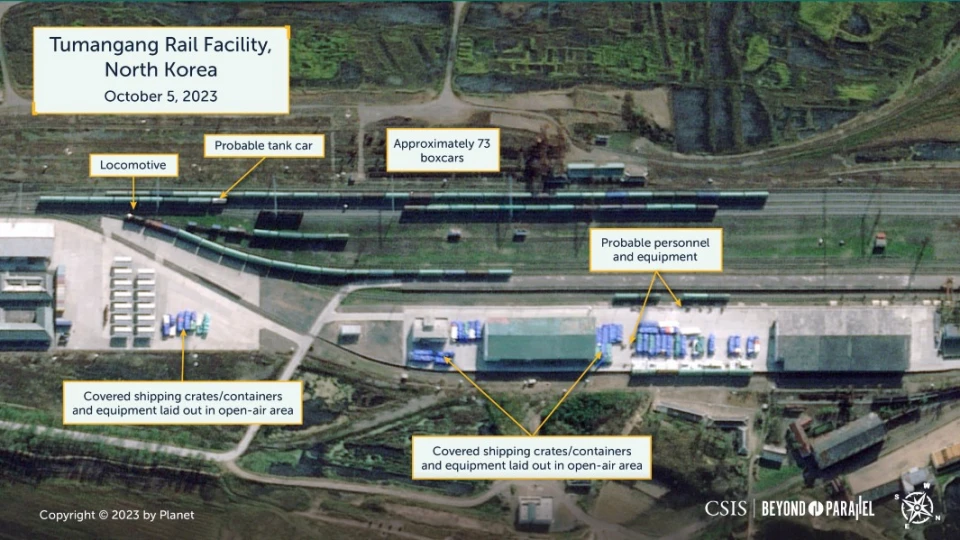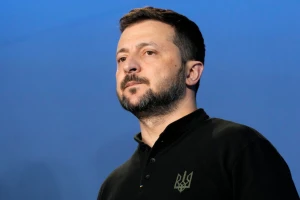
Suggestions point to increased flow of munitions to Russia from North Korea — military expert Zgurets
Serhiy Zgurets, Defense Express CEO and military expert, believes that the supply of ammunition from the DPRK to Russia will not be significant, given the distance and possible pace
He shared his opinions with Espreso TV.
"According to satellite reconnaissance data, one of the sites where there were usually 20 railroad cars is now home to 70 railroad cars. There is an assumption that after the visit of the DPRK leader to Russia, the dynamics of ammunition exchange may have increased. This is the conclusion of the experts who analyze this image, but there is no ammunition or anything visible. We just know that this is one of the stations used to transfer cargo by rail," said the expert.
 Photo: Beyond Parallel
Photo: Beyond Parallel
Serhiy Zgurets added that according to statistics, North Korea has artillery systems of 152 mm caliber in the range of 8,000 units, not including MLRS, and about 20 million ammunition rounds according to Soviet standards for such systems are stored in the DPRK.
"Probably some of them can be transferred to Russia, but the distance and pace do not allow us to say that these transfers will be significant. In addition, there are questions about the quality of North Korean ammunition, because there were periods when the DPRK used this ammunition in one of the conflicts and a significant part of the ammunition simply did not explode. That is, this indicates their low quality. However, Russia lacks its own capabilities to restore ammunition, so it will continue to look for options either from Iran or North Korea, which was confirmed by the conclusions of US intelligence or US officials. They said that there are grounds to believe that the flow of munitions from North Korea has intensified, but no one knows to what extent," Zgurets summarized.
Cooperation between Russia and the DPRK
Earlier, White House spokesman John Kirby said that talks between Russia and the DPRK on military cooperation were "actively progressing."
In July, Russian Defense Minister Sergei Shoigu visited the DPRK and met with his North Korean counterpart, among others.
In early August, the White House accused Russia of trying to buy munitions from the DPRK.
On August 31, the United States imposed sanctions on two Russian citizens over the development of weapons of mass destruction and ballistic missiles for the DPRK.
On the evening of Friday, September 8, at a parade in honor of the 75th anniversary of the founding of the state, DPRK leader Kim Jong Un met with a Chinese delegation before his trip to Russia next week.
On September 11, the North Korean leader had travelled by train to Vladivostok to meet with Russian leader Vladimir Putin. The Kremlin confirmed Kim Jong Un's visit to Russia "in the coming days".
On September 13, North Korean leader Kim Jong Un and Russian leader Vladimir Putin had a meeting at the Vostochny Cosmodrome.
On September 22, North Korea's leader held a meeting with the government to discuss the results of his recent meeting with Russian leader Vladimir Putin and called for active cooperation in all areas.
On October 7, the Beyond Parallel project reported that satellite images show the highest traffic on the Russia-DPRK border in recent years. This comes a day after rumors surfaced about the start of the transfer of North Korean artillery to Russia.
- News














































